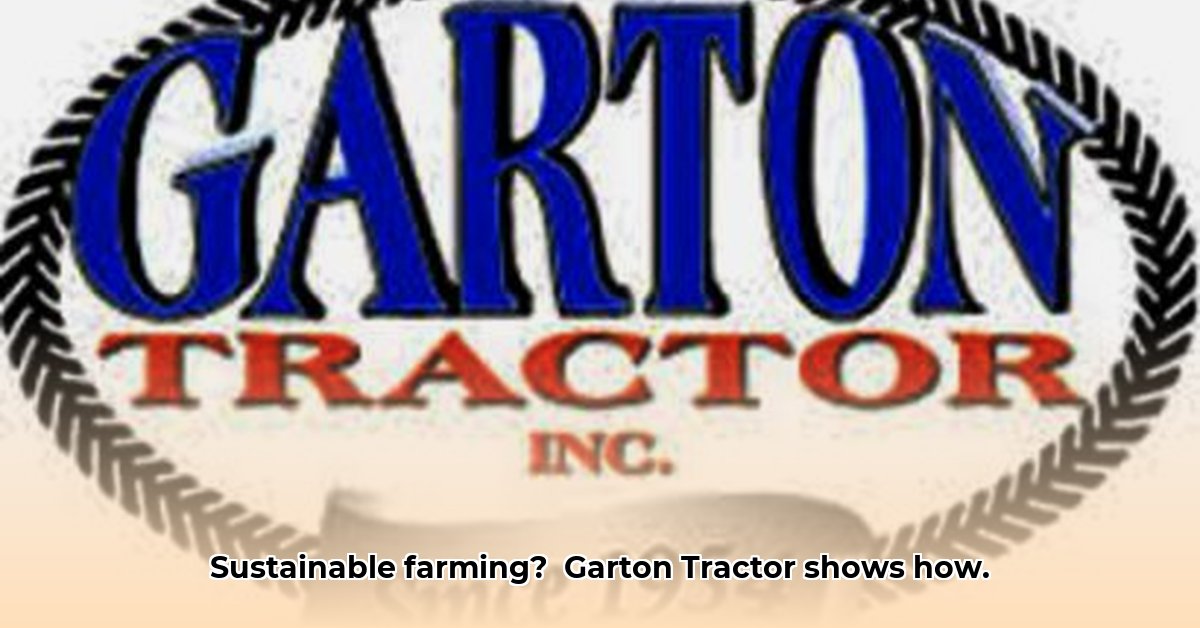
Garton Tractor, situated in the heart of Modesto, California's agricultural hub, is more than just a farm equipment dealer; it's a driving force in the evolution of sustainable farming practices within the Central Valley and beyond. Their commitment extends beyond simply selling tractors; it's an investment in a greener future, one field at a time. This commitment is evident in their diverse inventory, highlighted by their "carbon-negative specialty tractors" and advanced automation technology—a genuine game-changer in the agricultural landscape. For those new to operating this equipment, check out this helpful guide: Tractor Operation Guide.
More Than Just Shiny New Tractors: A Diverse Range of Solutions
Garton Tractor boasts an impressive array of equipment from leading brands like New Holland, Kubota, and Land Pride. This broad selection caters to farms of all sizes and needs, from small family operations to extensive commercial farms. It's a one-stop shop for sustainable farming needs. But their dedication goes further than simply stocking popular brands. They actively seek out top-tier, globally sourced equipment, ensuring their customers access the most innovative and environmentally conscious options available. This isn't just product sales; it's about forging partnerships committed to a sustainable future.
Global Partnerships: Investing in a Sustainable Future
Garton Tractor's reach extends beyond local suppliers. Their team frequently collaborates with manufacturers in the US and Europe, building strong relationships and bringing cutting-edge sustainable technologies directly to California farmers. This global perspective ensures they remain at the forefront of agricultural innovation, offering the most advanced sustainable solutions. This isn't simply about profit maximization; it reflects a genuine dedication to a more environmentally responsible agricultural future.
The Promise (and Challenges) of Carbon-Negative Technology
Garton Tractor prominently features what they term "carbon-negative" tractors. While precise figures on emission reductions are still under development – the technology is relatively new, and independent verification is ongoing – the very fact they offer such tractors is significant. They are leading a revolution, proactively testing and providing access to potentially transformative technology. This proactive approach deserves recognition, even as we await comprehensive, long-term environmental impact assessments.
Automation and Alternative Fuels: A Multi-pronged Approach
Beyond carbon-negative tractors, Garton Tractor champions automation in its equipment, another crucial step towards minimizing environmental impact. They are actively exploring and integrating various alternative fuel sources including biogas, methane, Stage V engines (engines meeting stringent emission standards), and electric models. Their vision is clear: a future where farming is both highly productive and environmentally sound. However, effectively integrating these advanced technologies requires careful consideration. A robust supply chain is paramount, as is access to skilled technicians and comprehensive customer support to ensure smooth transitions and widespread adoption.
Navigating the Complexities: Challenges and Opportunities
The potential of sustainable farming technologies is enormous; however, the transition is not without its hurdles. The cost of some technologies can be substantial, requiring farmers to explore financing options and government incentives. Moreover, training and expert technical knowledge are vital for effective operation and maintenance of this new generation equipment. Garton Tractor plays a vital role in both supplier training and customer support. The successful integration of these technologies demands industry-wide collaboration, including partnerships between equipment manufacturers, farmers, and policymakers.
The Future of Farming: A Collaborative Effort
Garton Tractor is more than a business; it's an integral part of a growing movement towards sustainable agriculture. Their actions underscore the critical need for collaboration among farmers, equipment suppliers (like Garton Tractor), and government agencies. Policymakers play a significant role by offering tax incentives and grants incentivizing sustainable practices and equipment adoption. This is not just a trend; it's a necessity for the long-term economic viability of agriculture in California's Central Valley and beyond.
Key Takeaways:
- Garton Tractor's commitment to sustainable agriculture is reshaping the industry.
- Their proactive approach to carbon-negative technology is a significant step forward.
- Collaboration among stakeholders is vital for the widespread adoption of sustainable practices.